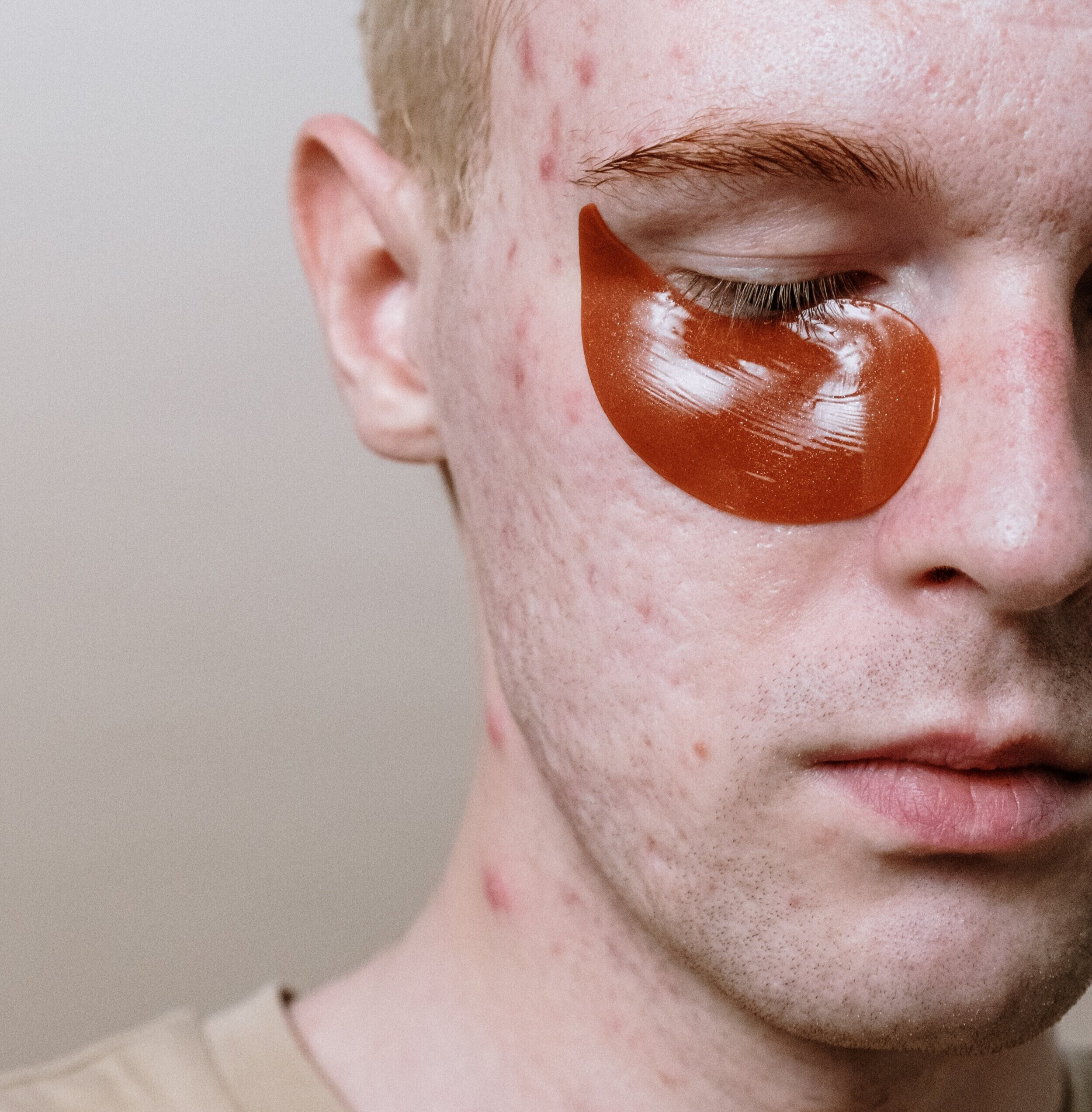Spots!: Getting to Grips with Acne
We often think of acne as something relegated to those awkward teenage years - a rite-of-passage and ordeal we all have to get through, but that we (thankfully) outgrow. However, as you might be aware as you age, this is not actually the case. Acne is something that can frequently afflict you in adulthood, and the impact can be massive. Your skin is the first thing that gets presented to the world, and it can have a huge effect on your quality of life, especially if you struggle with frequent and recurring acne breakouts.
Acne is such a complicated process. It can be triggered by a variety of factors including our genetics, diet, hormones, environmental oils, and stress. But as anyone who has really suffered from it can tell you, getting on top of it is no easy thing. We will try to explain and summarise the basics of what we know about acne, how it is characterised, and what the science behind it is.
What causes acne?
Acne can be triggered by a variety of things. The first thing to know is that there is likely an underlying genetic component to acne, meaning that some people are just more susceptible to acne and breakouts. This genetic predisposition is something that is out of your control and never anyone’s fault (more on this later!).
But the good news is there are many triggers of acne that you can do something about. There is a small correlation between diet and acne, and a small randomised control trial has shown that eating food with a low glycaemic index can reduce acne severity. However, there is no proven link between acne and things like chocolate or fat intake. I would be wary of anyone claiming they can give you a diet that will fix your acne. We know diet can theoretically be beneficial, but there are limitations as to how far this can take you. In general, eating whole foods over processed foods is always preferable for your health overall.
Hormonal fluxes can cause a flare-up of acne, and things like puberty, the menstrual cycle, or menopause are known to exacerbate this. Certain medical conditions that effect the hormones are also associated with acne, like polycystic ovarian disease (PCOS). Additionally, taking anabolic steroids or recent weight gain can also serve as a trigger.
Stress has also been shown to provoke acne. Emotional distress has often been a suspected cause of acne, but recent research has highlighted the importance of its impact.
What does not effect acne?
One of the most difficult things for acne-sufferers, especially those in their vulnerable teenage years, is that sometimes there is a big lack of understanding and negative connotation around it. A common misconception is that acne is related to hygiene, and this is absolutely not the case. Acne is not caused by a lack of washing. This misunderstanding leads to an unfortunate reaction and the common mistake of overwashing the face in an attempt to reduce acne during a flare up.
Some doctors and patients will say that UV light benefits their acne, and it's possible getting some sunshine will help in the short-term. However, there is no evidence that this holds in the long run.
What is the science behind acne?
To answer this, we need to start by talking about hair follicles. The hair follicle is an incredible organelle with its own blood supply, its own nervous system, and a unique immune system. It is one of the only organelles in the body that goes through a constant cycle of reinvention and regeneration. There is an incredible amount of hardware packed into this small organelle, which highlights its evolutionary importance.
Acne is the result of blocking or inflammation these hair follicles (sebaceous follicles) and their sebaceous glands. The main factors that lead to this includes abnormal follicular hyperkeratinisation, which essentially forms a plug and blocks the sebaceous follicle. You can also have an increase in sebum production, which will make the skin feel and look more oily, and this is often triggered by stress, hormones, or the environment.
Finally, a bacterial infiltration of Cutibacterium acnes (formerly known as Propionibacterium acnes) was classically thought to be a culprit, leading to inflammation and infection. Some of the latest research has indicated that it is not the proliferation of this bacteria that causes acne, but rather a loss of microbial biodiversity in general, as well as chronic inflammation. Read our article on the skin microbiome to see how our understanding is continuously evolving.
Understanding the science and biology behind acne formation allows medical-grade skincare ingredients to specifically target the factors actually causing acne, which is why it is so effective.
What are the different types of acne?
Microcomedones/comedones - can be either closed (whitehead) or open (blackhead.)
Inflammatory papules/pustules - Papules are small, raised inflammatory bumps between 1-5mm in size. Pustules are pus-filled lesions. There is often proliferation of C. acnes and inflammation.
Nodules/cysts - Nodules are raised and solid lesions of >5mm, found deeper in the dermis. These have rupture of the follicular wall with inflammation and scarring.
How is acne graded?
Mild acne: < 20 comedones, < 15 inflammatory lesions, or less than 30 total lesions.
Moderate acne: 20-100 comedones, 15-50 inflammatory lesions, or a total lesion count between 30-125.
Severe acne: > 5 cystic/nodular lesions, > 100 comedones, > 50 inflammatory lesions, or more than 125 total lesions.
What do we use in the treatment of acne?
Please note that the more advanced acne treatments are usually beyond the scope of practice of a cosmetic doctor, and should be managed by a dermatologist.
Retinoids – these normalise the follicular unit and have an anti-inflammatory effect. They can be very helpful in the treatment of comedonal and mild inflammatory acnes, as well as working synergistically with benzyl peroxide and topical antibiotics.
Topical antibiotics - are often used with retinoids or with benzyl peroxide.
Benzyl peroxide – a very effective bacteriocidal agent that targets C. acnes, and has some mild comedolytic properties (meaning it helps unclog the pores!) It is useful in that it does not promote microbial resistance.
Azelaic acid – helps to inhibit the growth of C. acnes and inflammation, as well as working to reverse the hyperkeratinisation that contributes to acne.
Salicylic acid - excellent and widely used ingredient that has anti-inflammatory and comedolytic effects.
Oral antibiotics – work against C. acnes, and should be prescribed by your GP or a dermatologist.
Hormonal therapy – can act as a 2nd-line treatment in female patients, and this can be used regardless of whether there are increased androgen (hormone) levels from conditions like Polycystic Ovarian Syndrome.
Spironolactone – this is a hormone receptor blocker, and can decreased sebum production. This is a more specialist medication and is something that should be discussed via a dermatologist.
Isotretinoin (Roaccutane) – this is indicated for very severe acne, and again is a medication that should be prescribed by a dermatologist after a full consultation and discussion. It has anti-inflammatory actions, normalises keratinisation and the follicular unit. This treatment is absolutely contraindicated in pregnancy.
Acne can be a difficult and complex skin health issue to treat. If you are suffering from acne, you should never hesitate to reach out to your GP, aesthetic medical professional, or dermatologist for help. Depending on the severity, there are a variety of treatment options available.
References
Dréno B, Pécastaings S, Corvec S, Veraldi S, Khammari A, Roques C. Cutibacterium acnes (Propionibacterium acnes) and acne vulgaris: a brief look at the latest updates. J Eur Acad Dermatol Venereol. 2018 Jun;32 Suppl 2:5-14. doi: 10.1111/jdv.15043. PMID: 29894579.
Jović A, Marinović B, Kostović K, Čeović R, Basta-Juzbašić A, Bukvić Mokos Z. The Impact of Pyschological Stress on Acne. Acta Dermatovenerol Croat. 2017 Jul;25(2):1133-141. PMID: 28871928.
Katta R, Kramer MJ. Skin and Diet: An Update on the Role of Dietary Change as a Treatment Strategy for Skin Disease. Skin Therapy Lett. 2018 Jan;23(1):1-5. PMID: 29357214.
Moradi Tuchayi S, Makrantonaki E, Ganceviciene R, Dessinioti C, Feldman SR, Zouboulis CC. Acne vulgaris. Nat Rev Dis Primers. 2015 Sep 17;1:15029. doi: 10.1038/nrdp.2015.29. PMID: 27189872.



















Profhilo and Polynucleotides are the two biggest skin booster treatments in the aesthetics world right now. While similar, in that they have an amazing ability to improve skin quality, it may be confusing when you’re trying to figure out which treatment to get when.
So we’re going to break it down for you.